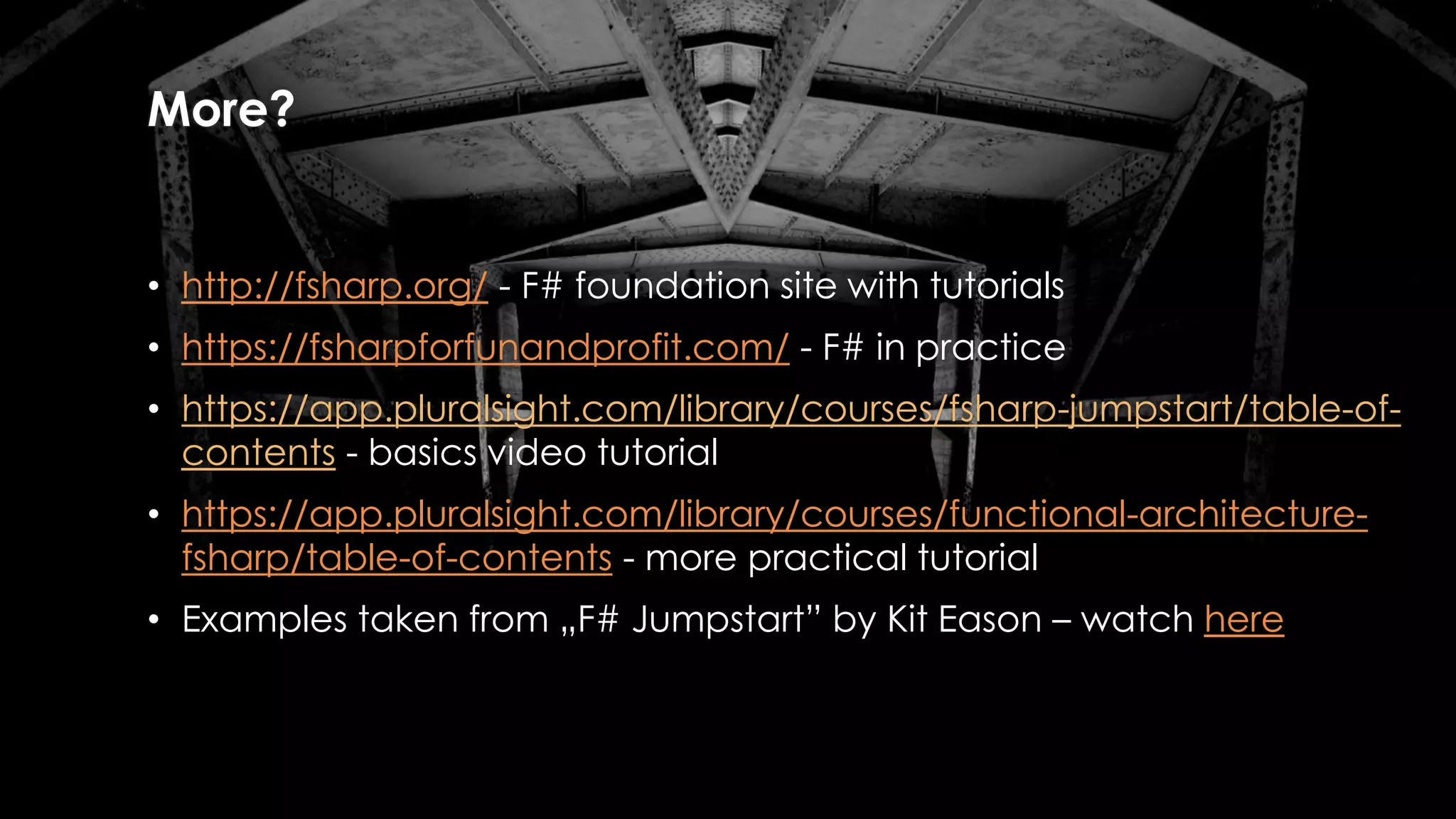The document discusses functional programming principles and the F# programming language, emphasizing its declarative approach and features like pure functions, recursion, and strong type checking. It outlines key concepts such as higher-order functions, immutability, pattern matching, and object-oriented programming support within F#. Additionally, several resources for learning F# are provided, including tutorials and video content.
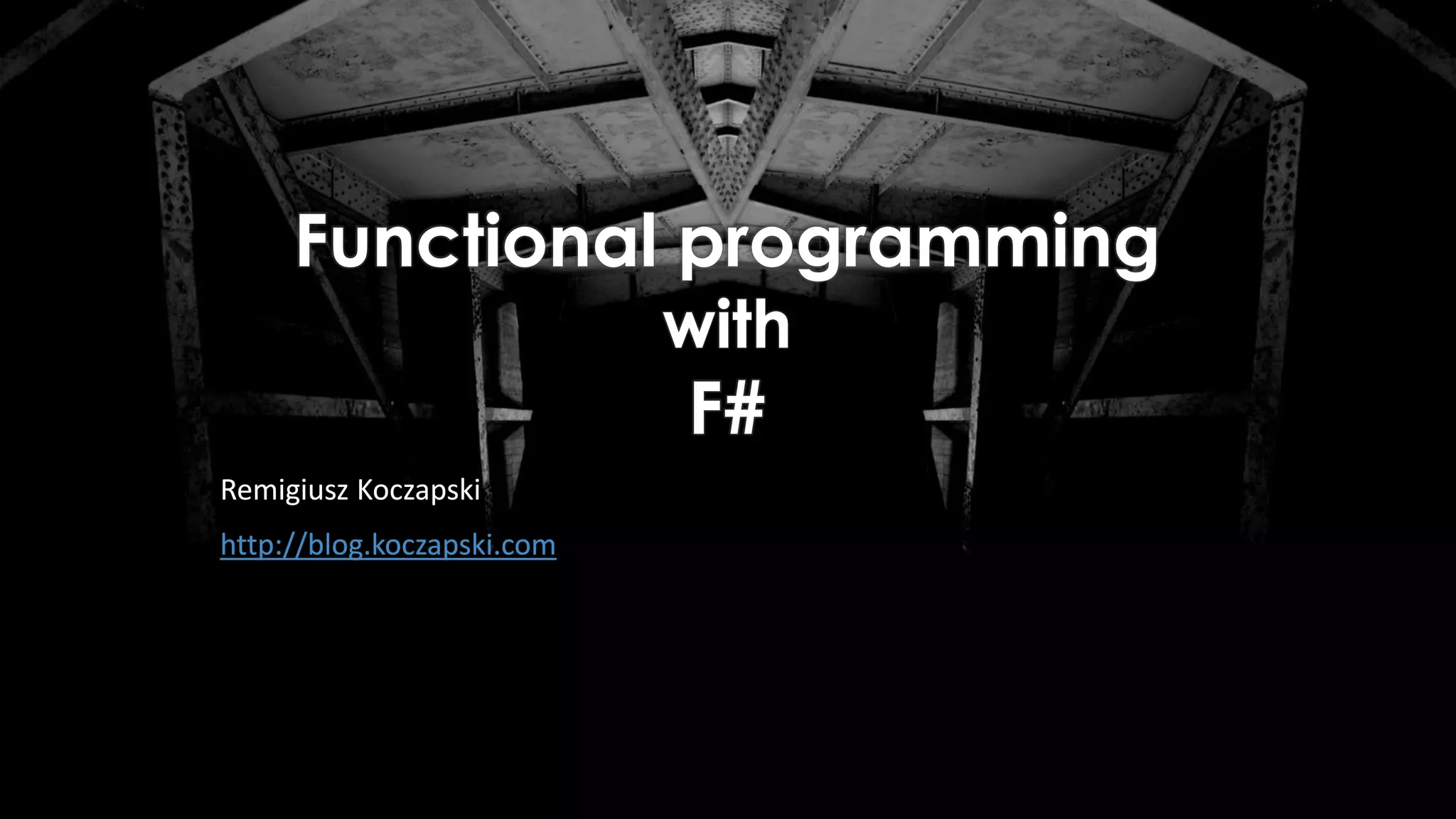
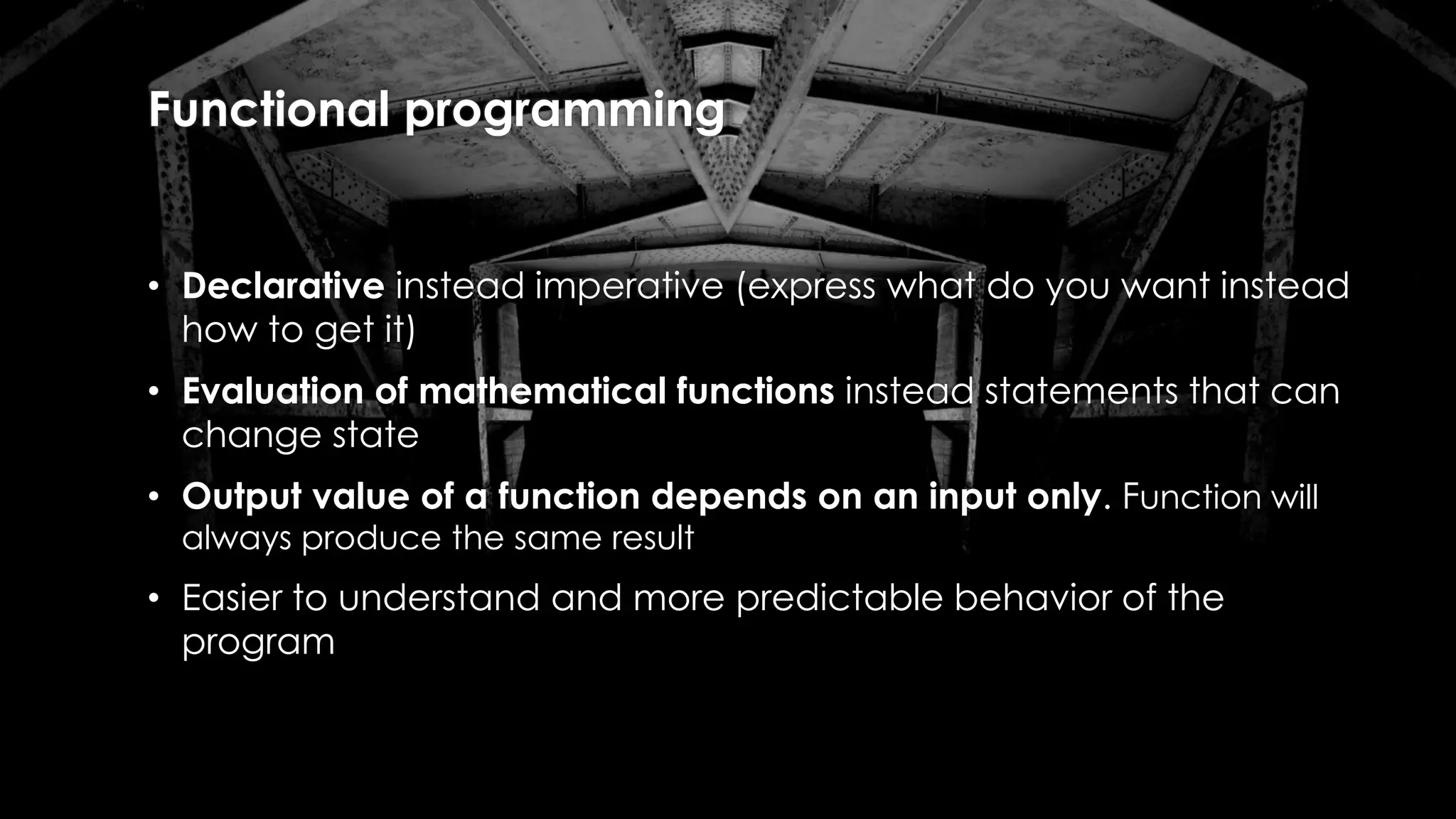
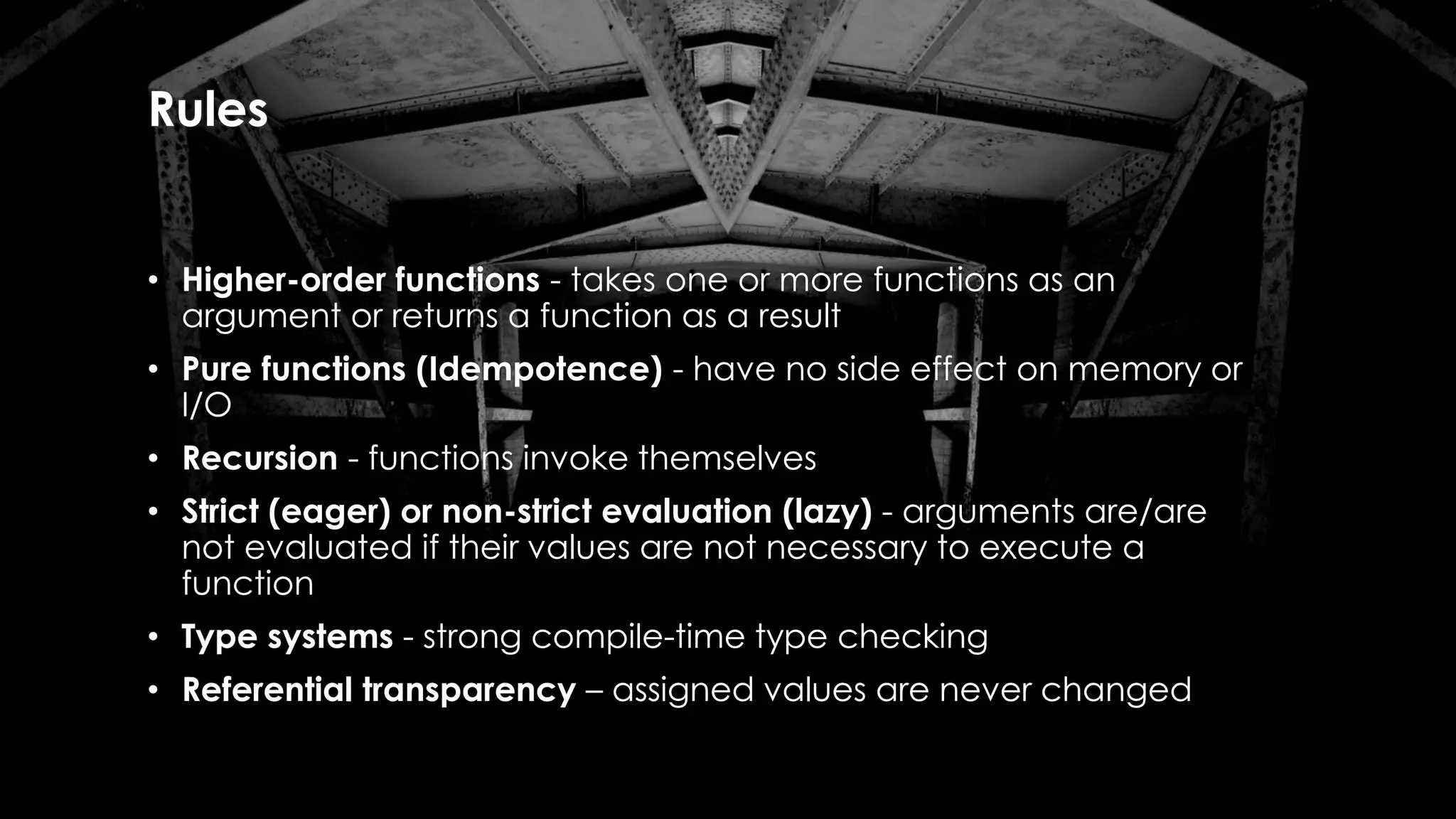
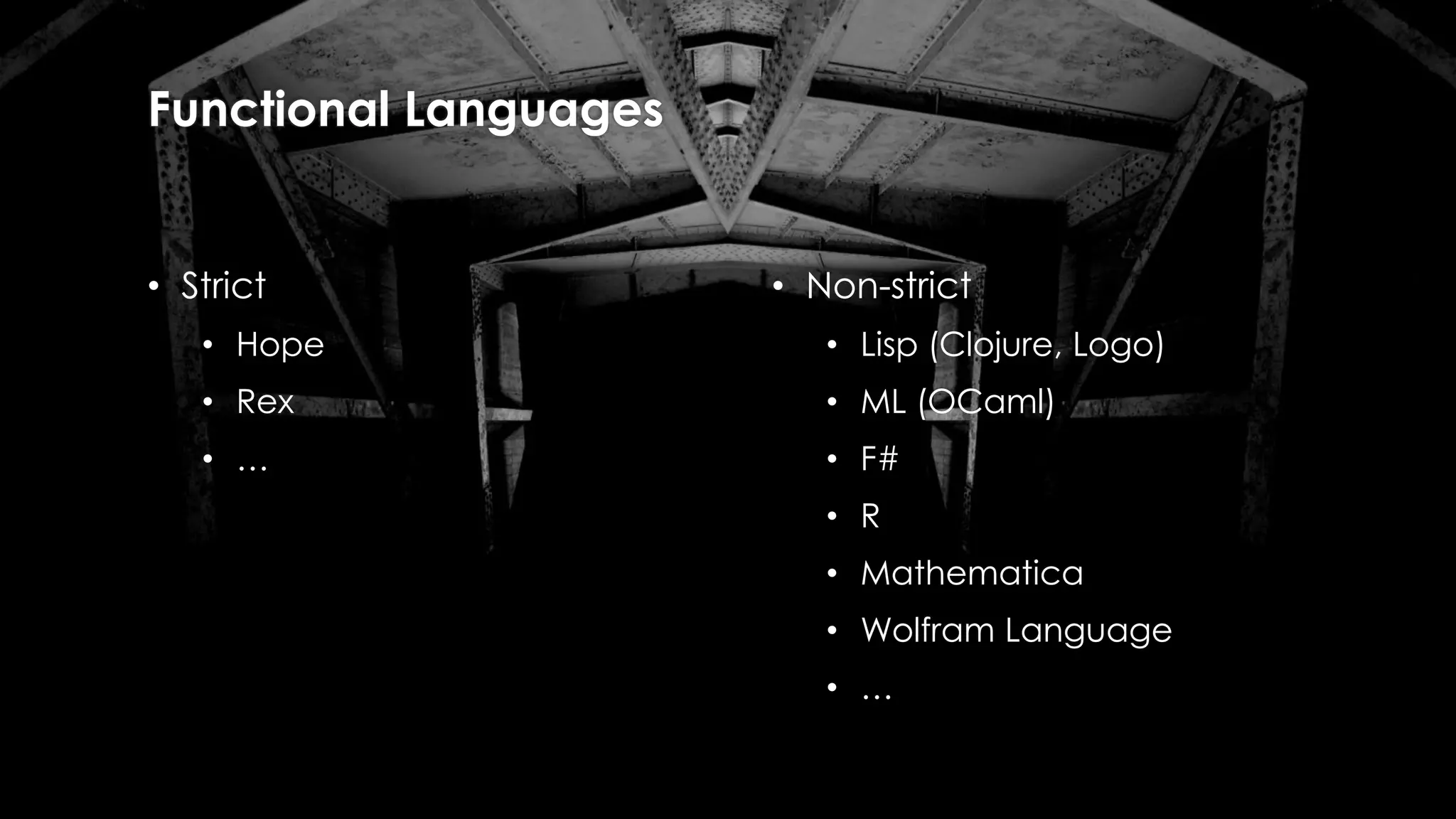
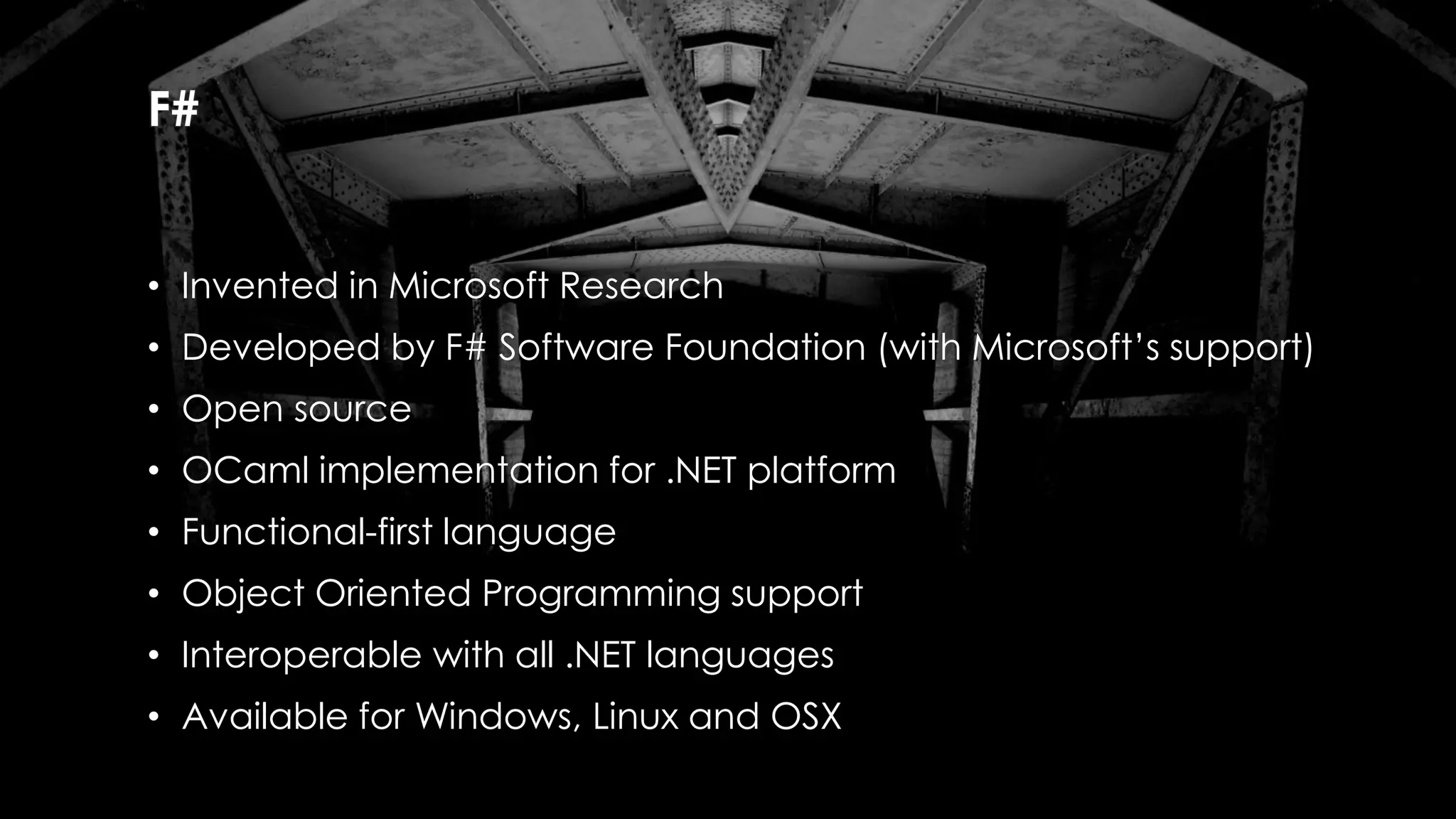
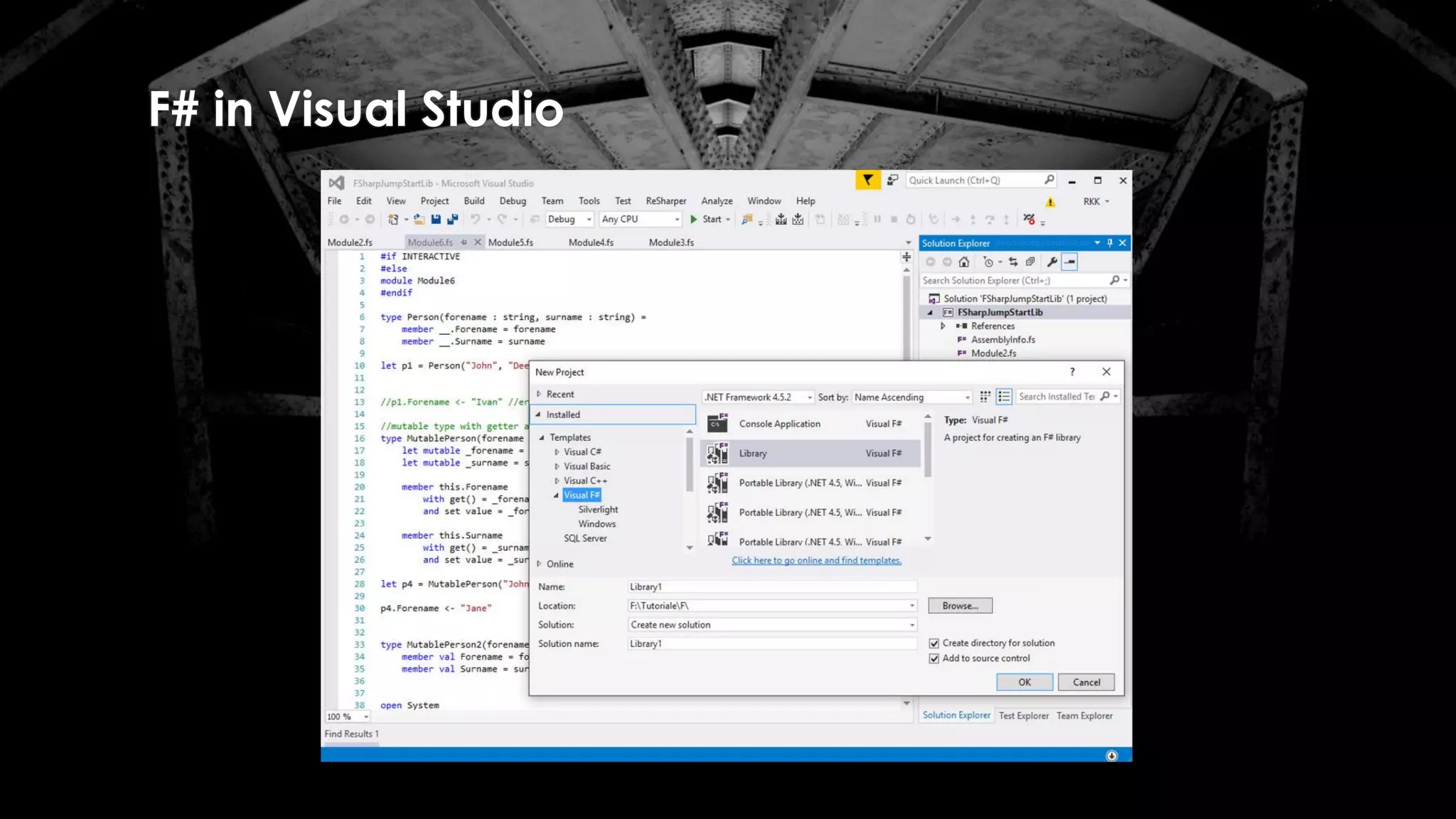
![F# syntax
let SayHello() =
printf "Hello"
[<EntryPoint>]
let main argv =
SayHello()
System.Console.ReadKey() |> ignore
0](https://image.slidesharecdn.com/functional-programming-with-fsharp-171011201604/75/Functional-programming-with-F-7-2048.jpg)
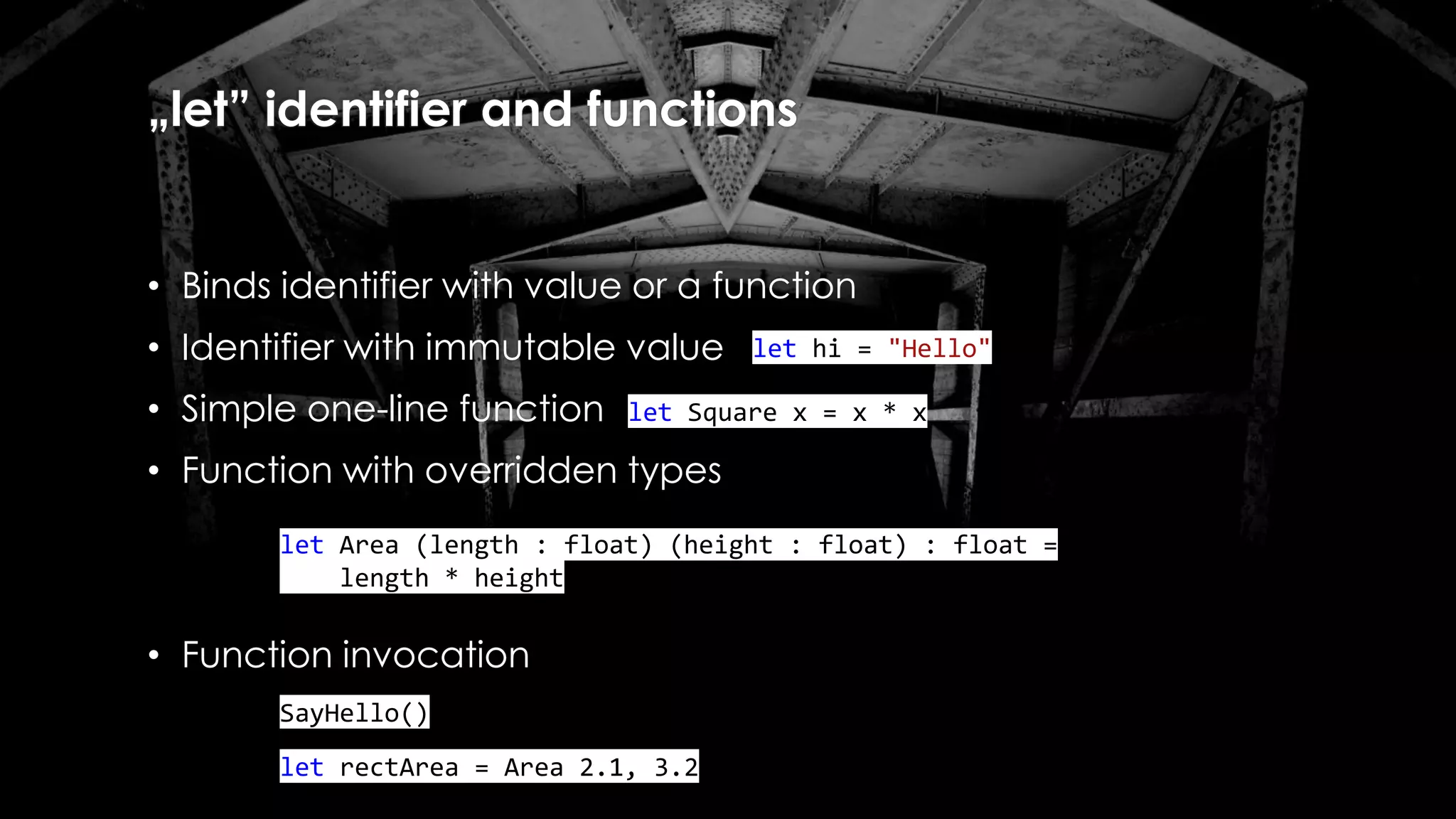
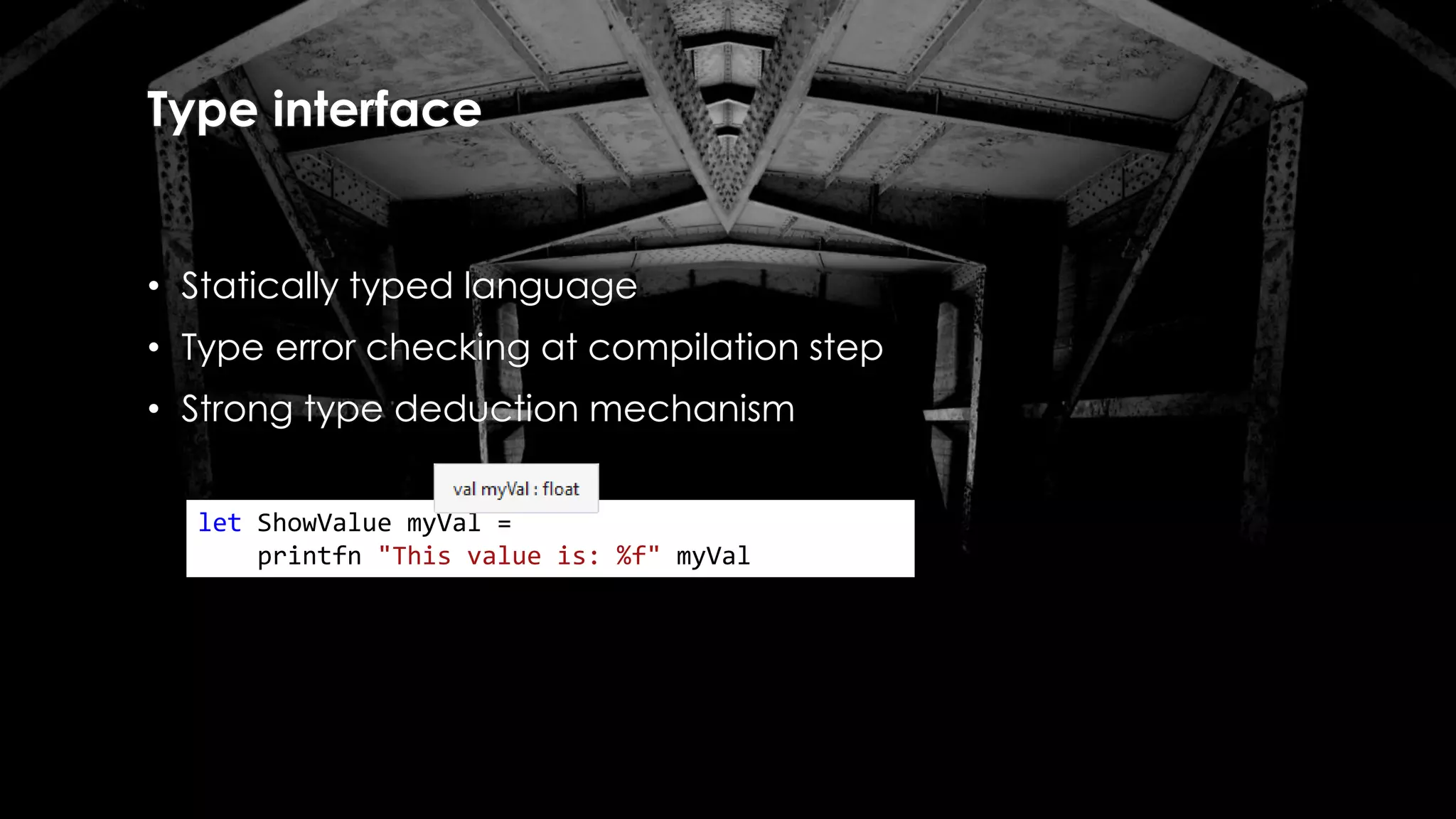
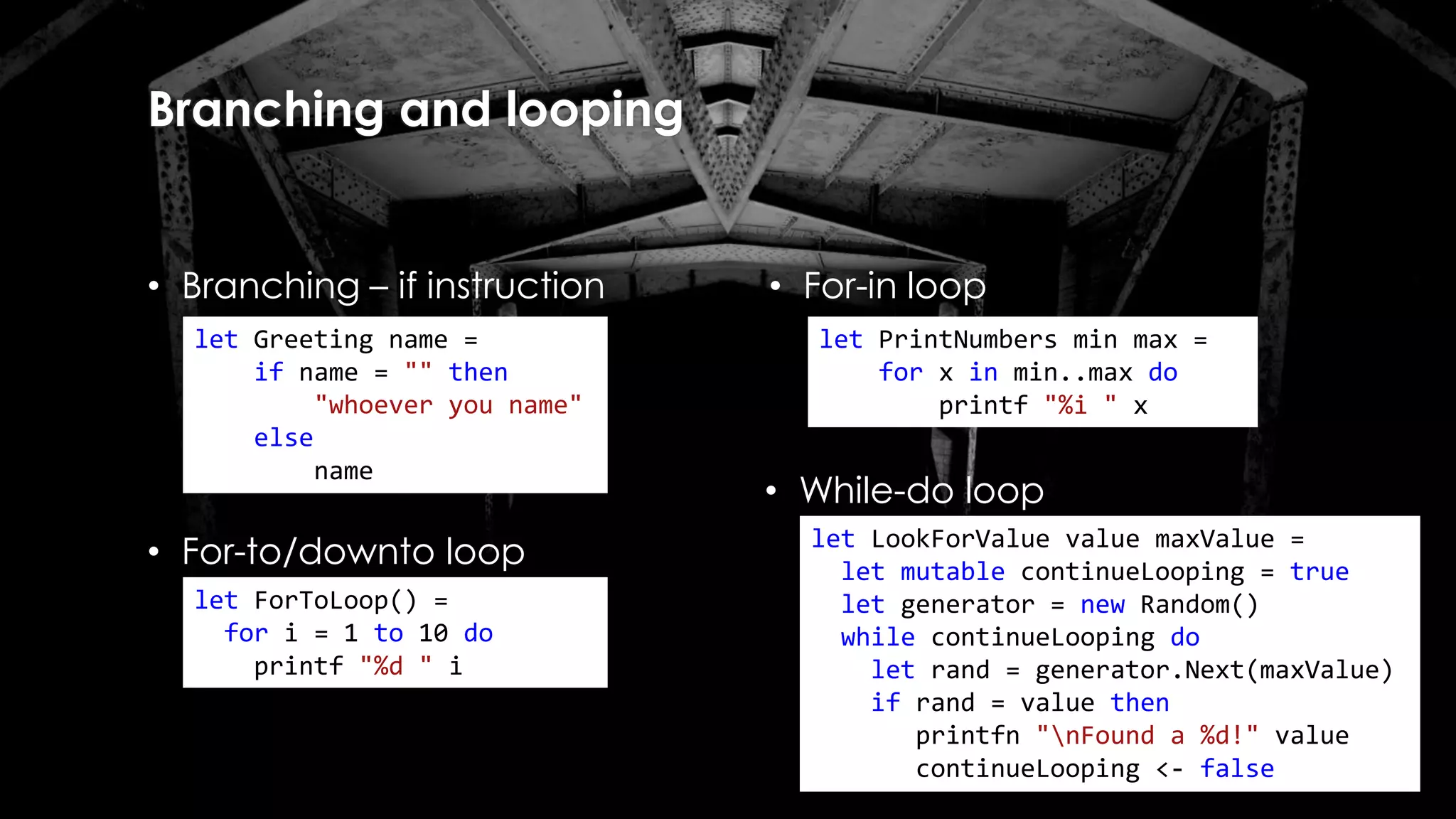
![Arrays, lists and sequences
• Arrays – fast, fixed size, with mutable elements
• Lists – works like an array, with immutable elements
let arr = [|1; 2; 3|]
let squares = Array.init 10 (fun index -> index * index)
let myList = [2; 3; 5; 4]
arr.[1] <- 99
let even = List.filter (fun x -> x % 2 = 0) myList
• Sequences – works like IEnumerable; variable size
let smallNumbers = {0..99}
let smallNumbers2 = Seq.init 100 (fun x -> x)](https://image.slidesharecdn.com/functional-programming-with-fsharp-171011201604/75/Functional-programming-with-F-11-2048.jpg)
![Forward-pipe operator |>
• Gets previous’ instruction result as an argument of next instruction
let PrintLongWords (words : string[]) =
let longWords : string [] = Array.filter(fun w -> w.Length > 8) words
let sortedLongWords = Array.sort longWords
Array.iter(fun w -> printfn "%s" w) sortedLongWords
let PrintLongWords2 (words: string[]) =
words
|> Array.filter (fun w -> w.Length > 8)
|> Array.sort
|> Array.iter (fun w -> printfn "%s" w)](https://image.slidesharecdn.com/functional-programming-with-fsharp-171011201604/75/Functional-programming-with-F-12-2048.jpg)
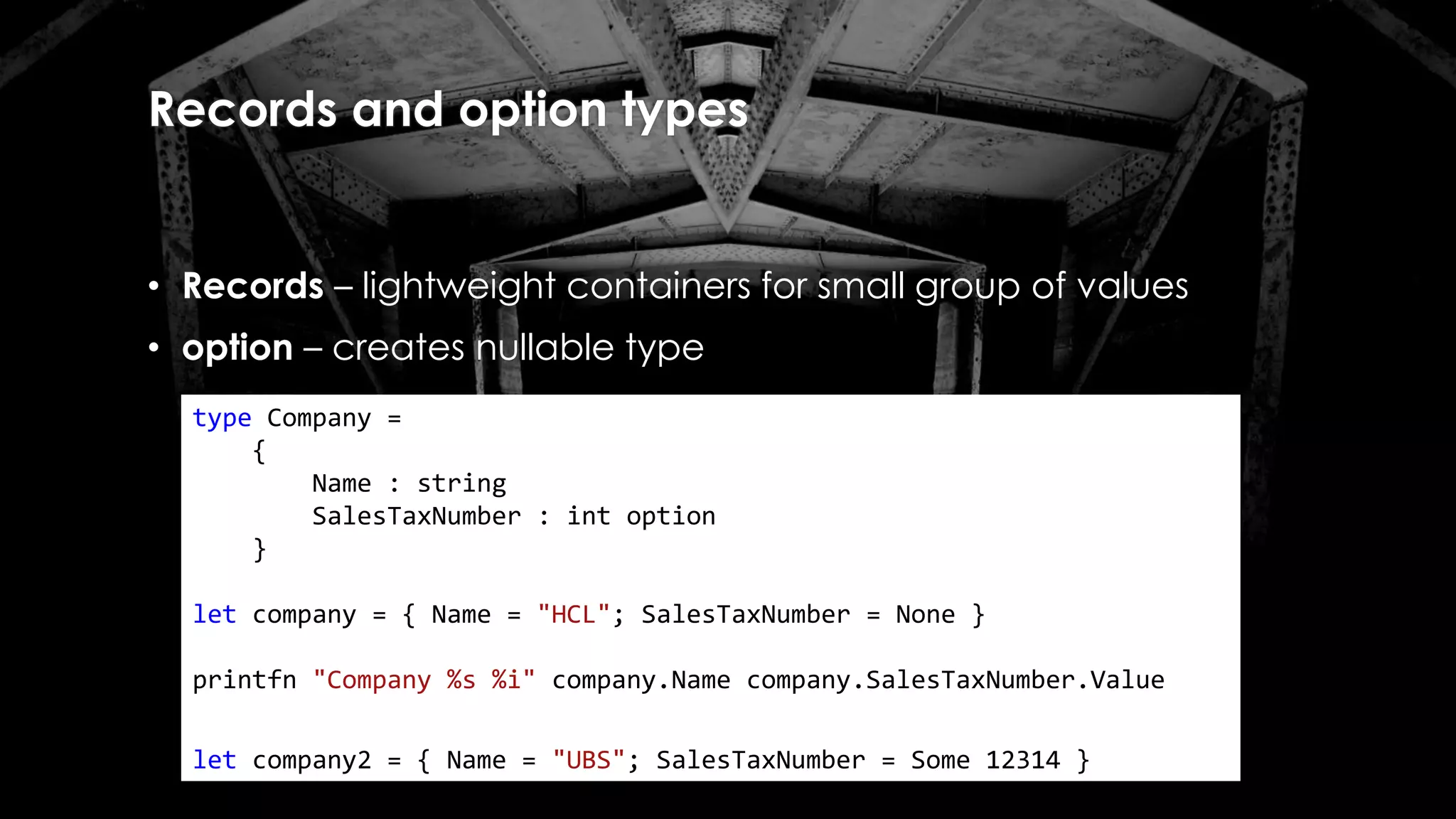
![Discriminated Unions
• Discriminated Union – generalized types without object hierarchy
type Shape =
| Square of float
| Rectangle of float * float
| Circle of float
let s = Square 3.4
let r = Rectangle (2.2, 1.9)
let c = Circle (1.0)
let drawning = [|s; r; c|]](https://image.slidesharecdn.com/functional-programming-with-fsharp-171011201604/75/Functional-programming-with-F-14-2048.jpg)
![Pattern matching
• Allows to compare value with conditions
• Warning if not every case is covered
• Knows how to extract fields from type
let Area (shape : Shape) =
match shape with
| Square x -> x * x
| Rectangle(h, w) -> h * w
| Circle r -> System.Math.PI * r * r
let total = drawning |> Array.sumBy Area
let one = [|50|]
let two = [|60; 61|]
let many = [|0..99|]
let Describe arr =
match arr with
| [|x|] -> sprintf "One elem: %i " x
| [|x; y|] -> sprintf "Two elems: %i, %i" x y
| _ -> sprintf "A longer array"](https://image.slidesharecdn.com/functional-programming-with-fsharp-171011201604/75/Functional-programming-with-F-15-2048.jpg)
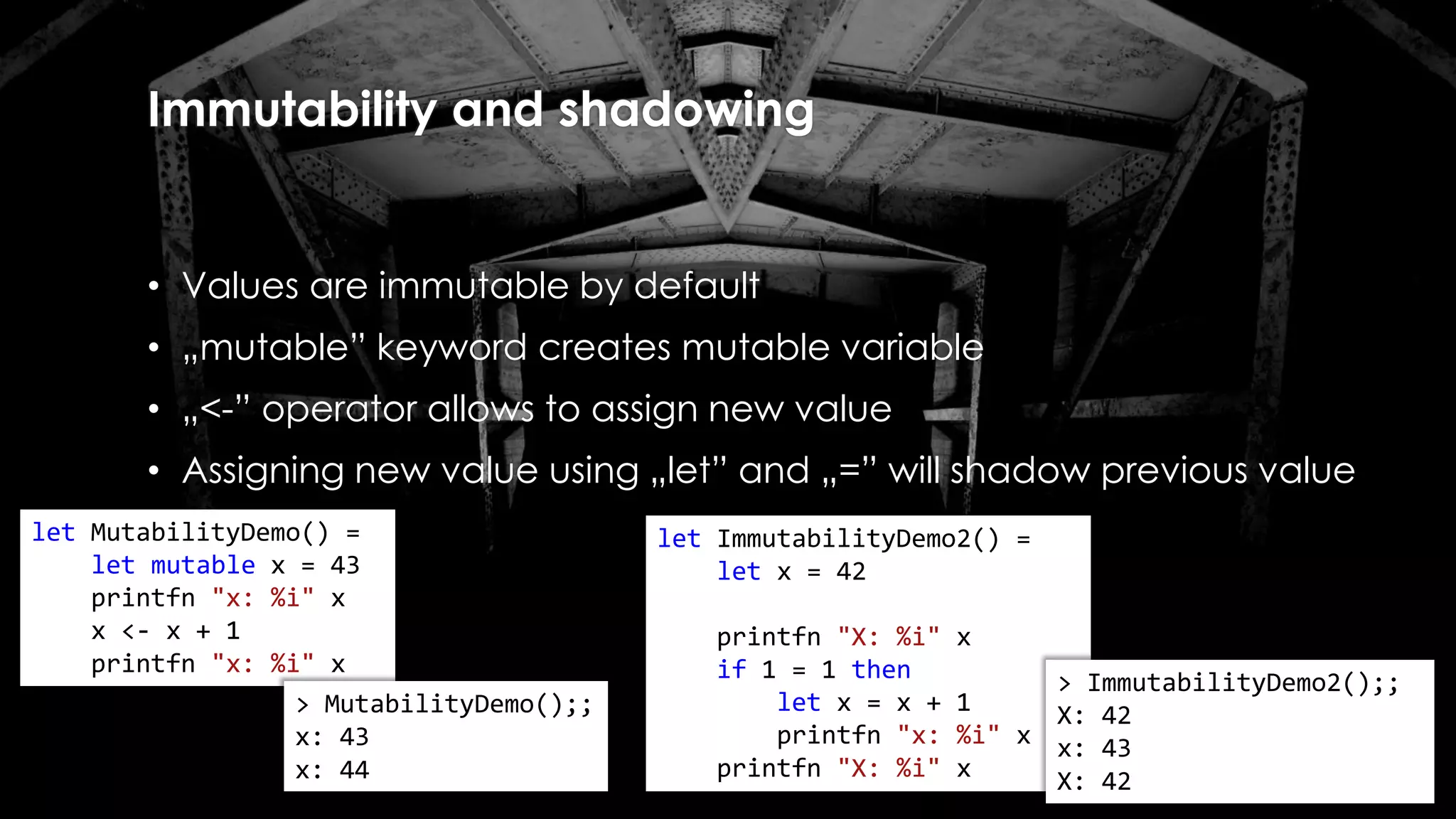
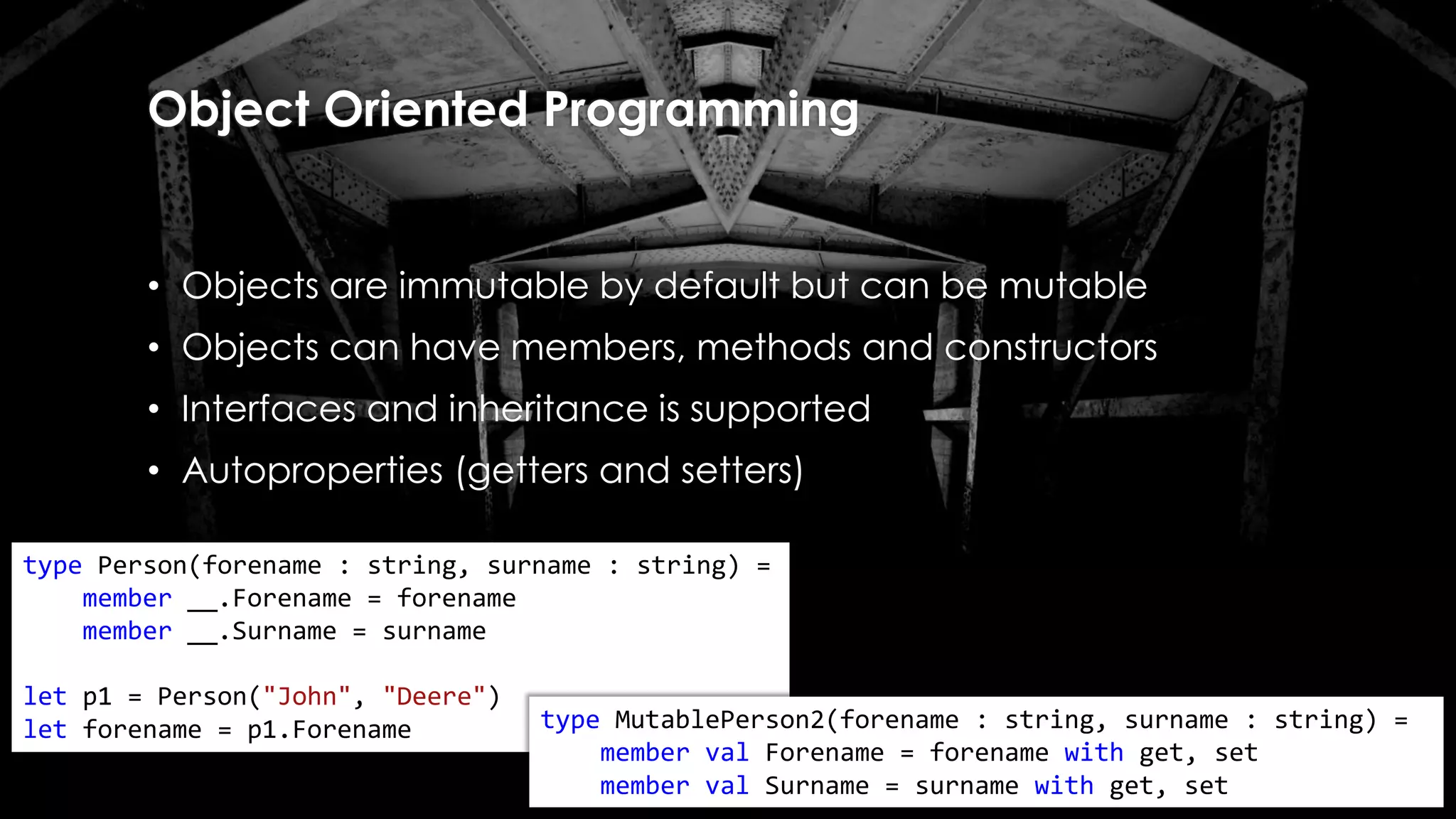
![Unit testing in F#
[<TestCase("23:59:59", 23, 59, 59)>]
let ``is time properly parsed``(time, parsedHour, parsedMinute, parsedSecond) =
//act
let parsedTime = Time.Parse(time)
//assert
Assert.That(parsedTime.Hour, Is.EqualTo(parsedHour))
Assert.That(parsedTime.Minute, Is.EqualTo(parsedMinute))
Assert.That(parsedTime.Second, Is.EqualTo(parsedSecond))](https://image.slidesharecdn.com/functional-programming-with-fsharp-171011201604/75/Functional-programming-with-F-18-2048.jpg)
